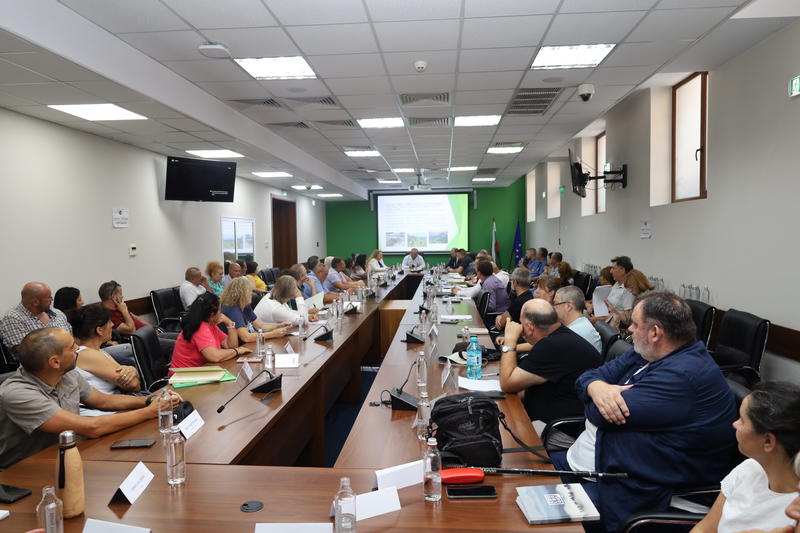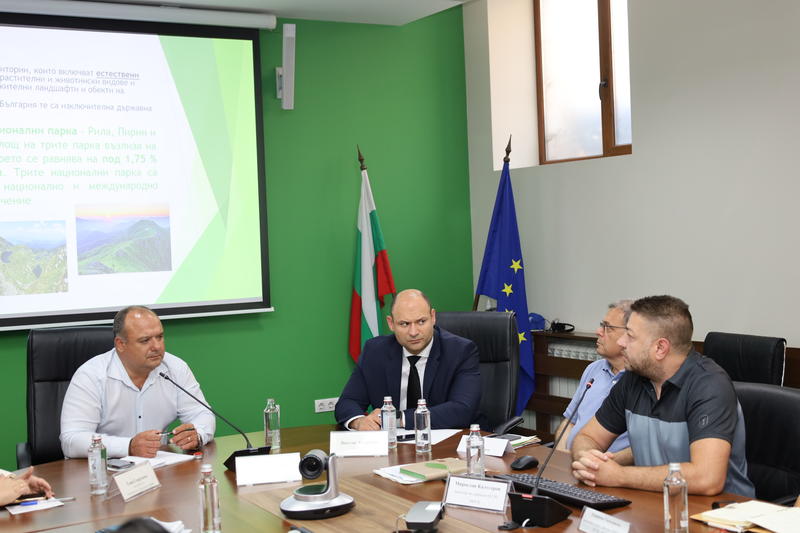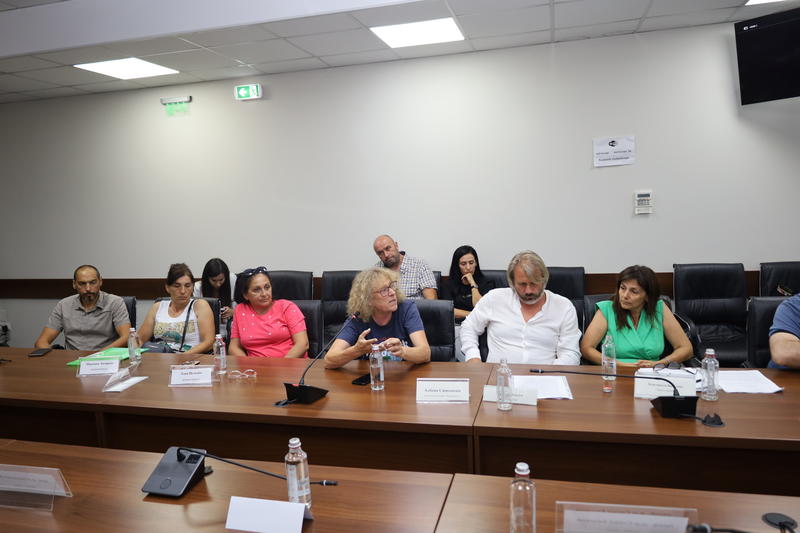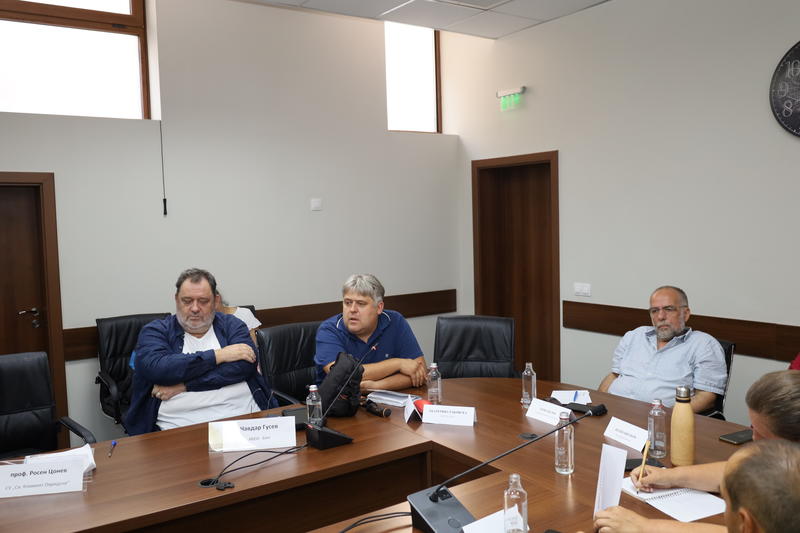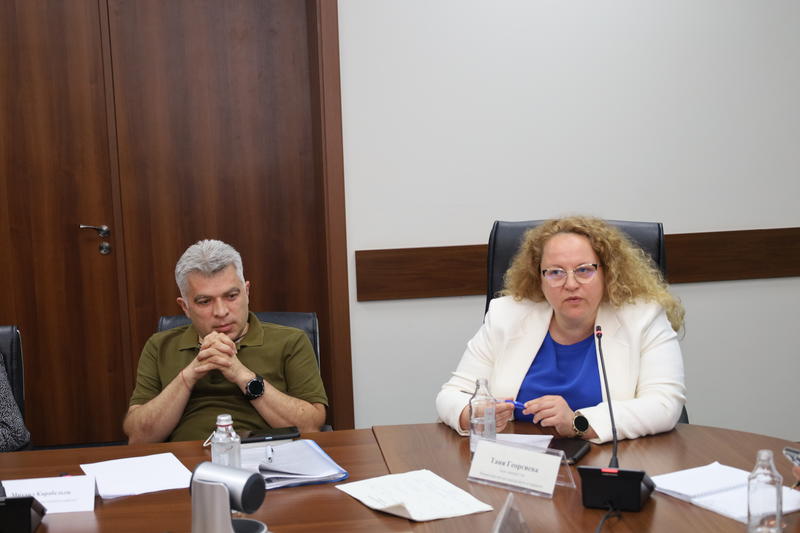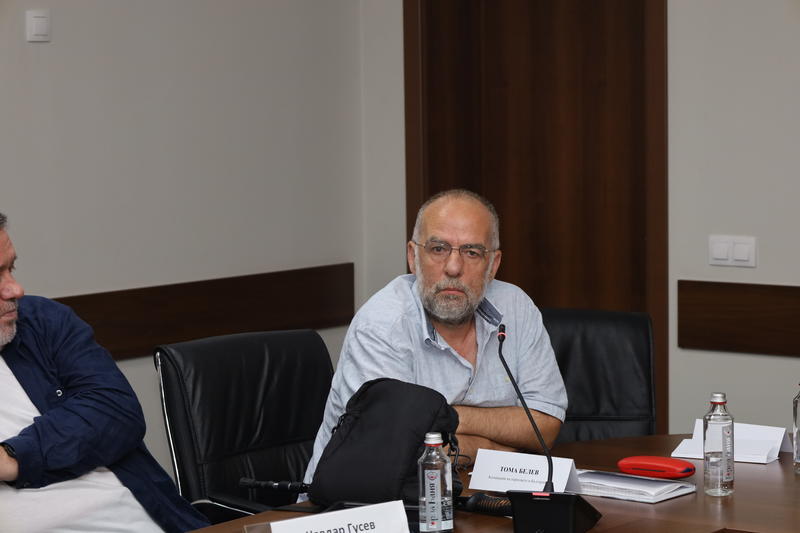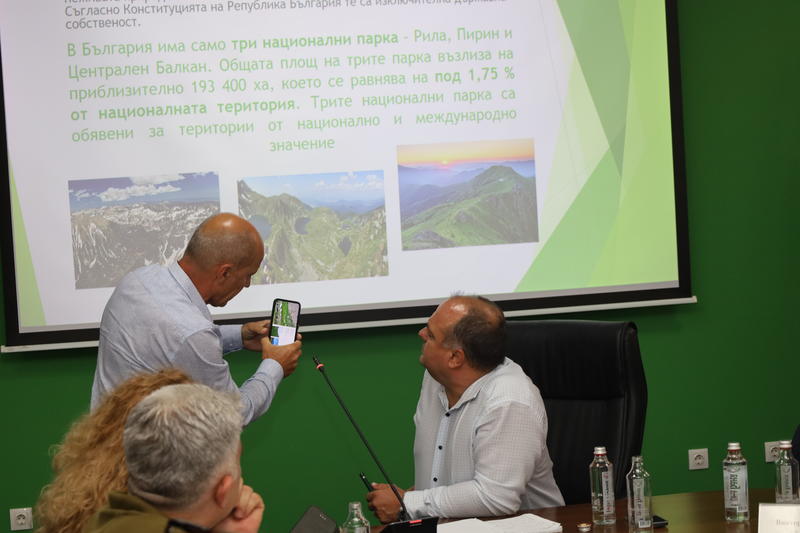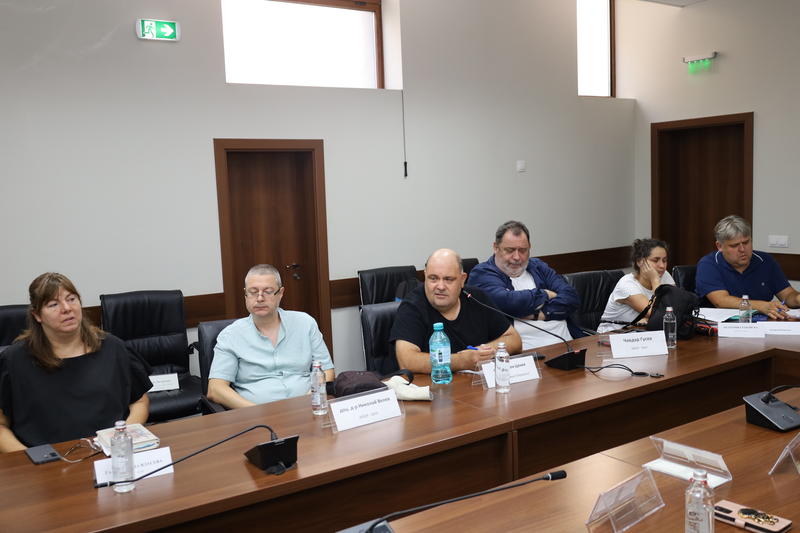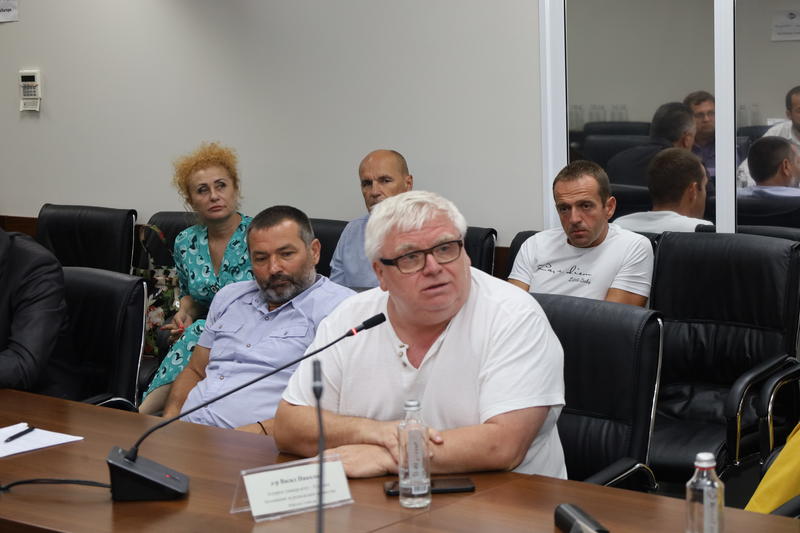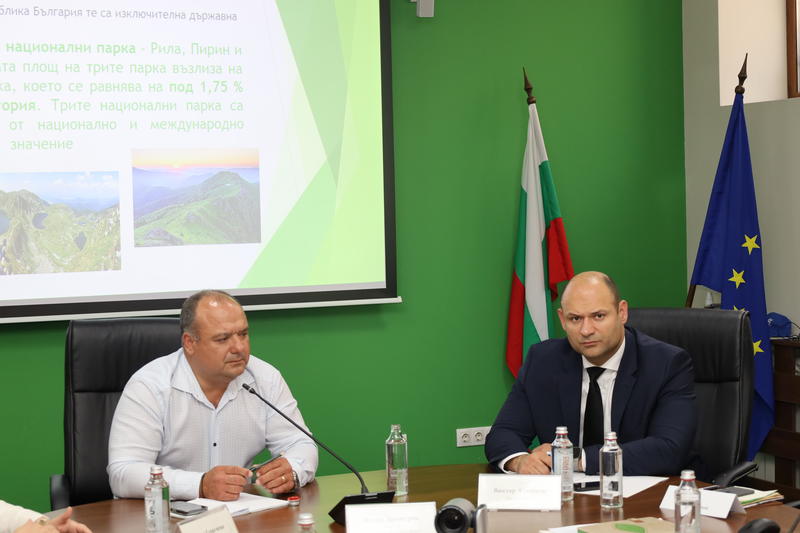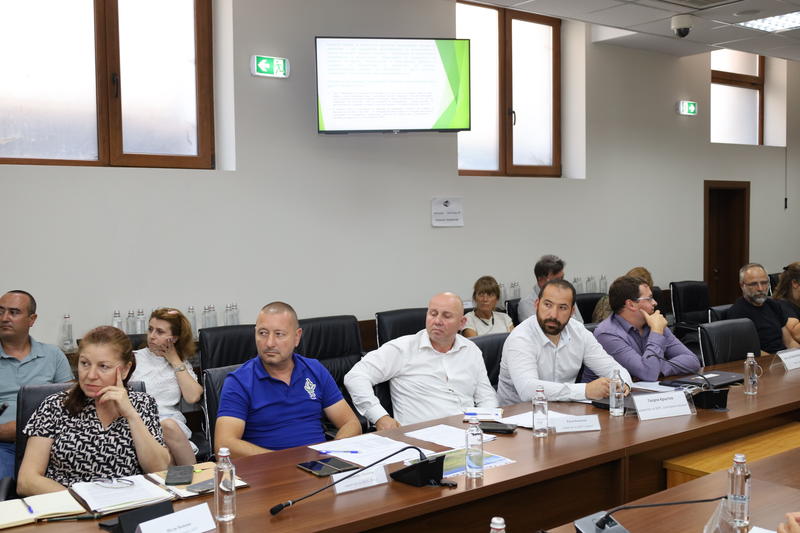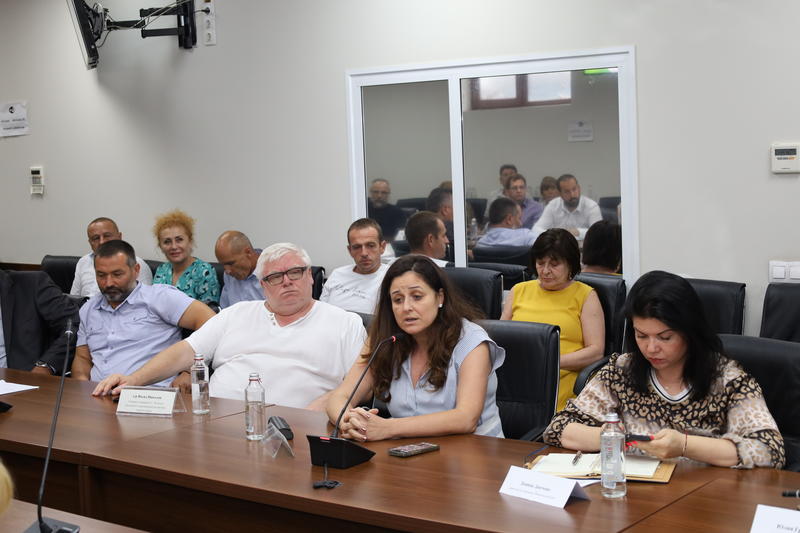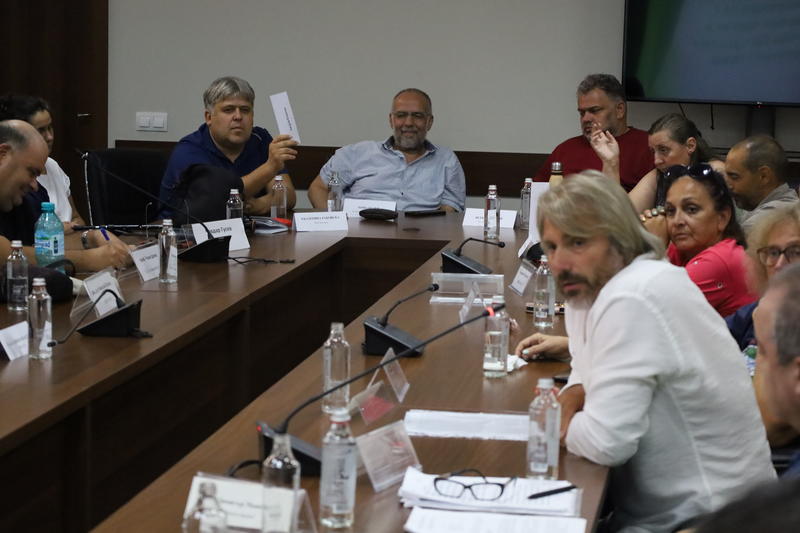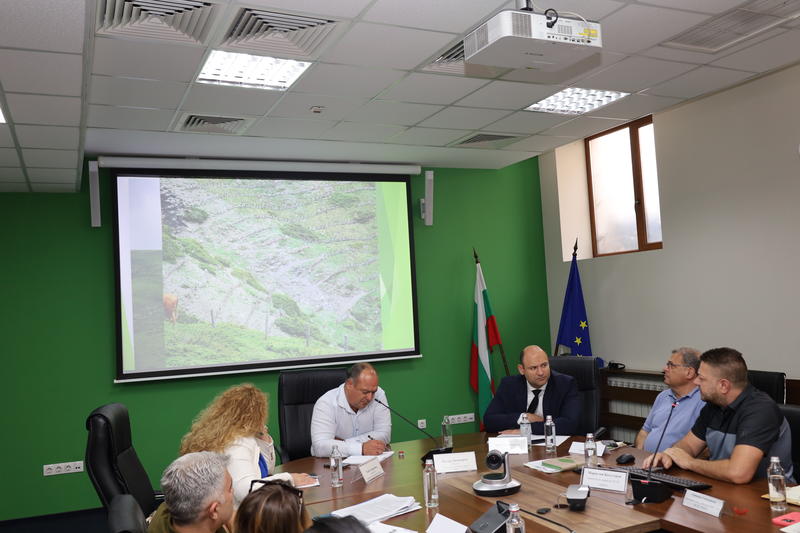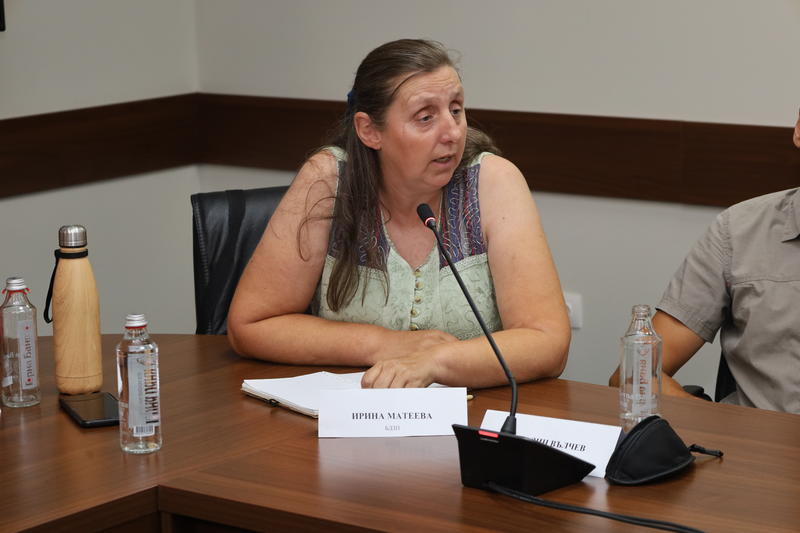The MOEW position on grazing in national parks was presented at a work meeting
17 Jul, 2024 | 16:24- The “Pastoralism” intervention was introduced exclusively for biodiversity conservation in the high mountains.
- The “Pastoralism” intervention has resulted in excessive grazing pressure, causing negative effects and damage to valuable natural habitats.
- The long-term solution is to disperse grazing by providing grazing and support facilities in areas outside national parks.
- The MOEW has taken action to update the Tariff of fees payable for permitted use in protected areas - exclusive state property.
A meeting was held at the Ministry of Environment and Water (MOEW) with representatives of the Ministry of Agriculture and Food (MAF) and livestock farmers, who are expressing dissatisfaction with the changed requirements for grazing in national parks. The discussion, chaired by Minister Petar Dimitrov, was attended by representatives of branch and trade union organisations, non-governmental nature conservation organisations, leading scientists from the Bulgarian Academy of Science (BAS), and Sofia University "St. Kliment Ohridski”.
The meeting was held in order to discuss the implementation by the Ministry of Agriculture of the conditions and measures in the Environmental Assessment Opinion No. 5-4/2023 of the Minister of Environment and Water, with which the Strategic Plan for the Development of Agriculture and Rural Areas in the Republic of Bulgaria is coordinated, as well as the conditions under which it is permissible to carry out grazing in national parks.
In the main presentation, delivered by Miroslav Kalugerov - Director of the Directorate "National Nature Protection Service", a number of controversial issues on the emerging case were clarified and the position of the Ministry of Environment was presented, supported by scientists from BAS and universities and experts from nature conservation NGOs.
As the contracting authority, the MAF has accepted the Environmental Assessment and Environmental Impact Assessment (EA and EIA) reports for the Strategic Plan. The conditions and measures resulting from them and included in the Environmental Assessment Opinion are binding on the contractor and should be implemented by the MAF in the implementation of the plan.
The farmers' dissatisfaction has arisen from the fact that the MAF and its structures have not implemented the conditions and measures of the Opinion in such a way that their implementation does not lead to insurmountable complications for the farmers. The MAF has not notified all stakeholders in a timely manner about the restrictions arising from the EA and the EIA for the Strategic Plan, despite repeated requests from the MOEW. As the commissioner of these reports, the MAF was aware of the conditions and measures resulting from them long before the administrative act by the Minister of the Environment and Water was issued. However, the MAF did not carry out an effective information campaign, which created the precondition for violating the farmers' legitimate legal expectations.
With regard to grazing in the three national parks - Rila, Pirin, and Central Balkan, the annual plans for 2024 have reached an optimal compromise that allows livestock farmers to graze in the national parks again this year, but with a reduced grazing load. In response to false claims, it was explicitly pointed out that the national park authorities have not applied conditions and restrictions related to altitude. The entire permissible grazing resource within the three protected areas has been made available and the livestock farmers have been issued with the relevant administrative acts. Some 33 000 animals will graze in the national parks this year.
Scientists from the Institute of Biodiversity and Ecosystem Research (IBER) and the National Museum of Natural History (NMNH) at the BAS reminded that they had expressed expert opinions on the subject, which had been sent to the Prime Minister, the Minister of Agriculture and Food, the Minister of Environment and Water, the directorates of the national parks, branch agricultural organizations, as well as to the attention of the President of the Republic of Bulgaria (https://www.moew.government.bg/bg/ucheni-ot-ibei-na-ban-v-nacionalnite-parkove-se-dopuskat-dejnosti-samo-ako-poddurjat-bioraznoobrazieto/ and https://www.nmnhs.com/downloads/varia/stanovishte-pastoralisam-npm-ban.pdf).
The representatives of the scientific community once again confirmed that the “Pastoralism” intervention was introduced exclusively and only for the conservation of biodiversity in the high mountains. The scientists' conclusions are that the implementation of the “Pastoralism” measure has resulted in excessive grazing pressure, with negative effects and damage to valuable natural habitats. In addition to the loss of biodiversity, the prospect for the upland forage resource to be used effectively in the years to come is diminishing, which is precisely what livestock farmers should be more interested in. Instead, their insistence that restrictive measures be lifted shows a lack of a clear and long-term vision for their own businesses, which depend on the resources provided by grassland habitats, the scientists believe. For the natural habitats listed in Annex I of the Biodiversity Act that are protected in national parks, the state has a duty to protect them, maintain them and, where necessary, take measures to improve their conservation status, which is directly linked to reducing grazing pressure.
Scientists insist that the legislation and the obligations, restrictions and responsibilities it entails must be respected unconditionally. They are of the opinion that grazing in the mountain regions of Bulgaria has a long tradition and should be preserved, but they call for the subsidy to be stopped and thus for the artificial monetary incentives that have led to a multifold increase in grazing animals in national parks to be removed.
As long as grazing in national parks remains permitted by law, seizing the subsidies for it would help reduce pressure on mountain lakes and alpine meadows, conservation experts say.
Beyond the monetary incentive, there are other factors that attract farmers to choose national park areas for livestock grazing. There are relatively large areas within the parks with one owner - the state. Access to grazing in these areas is relatively easy. The fee paid by livestock farmers for grazing in national parks is low - non-marketable. For grazing domestic animals within the national parks, a fee of one leva per hectare is paid for cattle and fifty cents for sheep. Up to ten animal units pay an even lower fee - 30 cents per acre. By comparison, the lowest price for renting an acre of state land or municipal land is 6 leva. According to the National Statistical Institute, the average price for rent/lease of agricultural land for the category of permanent grassland for 2023 is 25 leva per acre. This justifies the need to update the Tariff of fees to be paid for permitted grazing use in protected areas - exclusive state property. The MOEW has taken action to update the document and it will be published for public consultation shortly, it was announced during the meeting.
Claims of lack of areas for summer grazing of livestock in the country are greatly exaggerated, according to an analysis of data published by the Ministry of Agriculture. Pastures and meadows above 500 m a.s.l. nationally amount to 406 385 ha; above 800 m a.s.l. at national level - 229 921 ha; above 1000 m a.s.l. at national level - 145 035 ha. Given that the eligible grazing area in the national parks totals only 33 714 ha and the altitude ranges between 600 and 2925 m, it cannot be argued that there are suitable areas for summer grazing only within the three protected areas. Data on the occupancy of high mountain pastures for 2023 from the Bulgarian Agricultural and Economic Outlook Survey also indicate that there are many times more suitable areas for summer grazing of domestic animals in the country compared to the resource of the national parks. According to the MOEW, in 2023 only 3% of cattle and 2.8% of sheep in Bulgaria grazed in national parks. The area of pastures allowed for grazing in national parks according to the approved annual plans represents only about 2.5 % of the country's pastures.
The Ministry of Agriculture is the institution that implements the state policy in the field of animal husbandry, it was repeatedly pointed out during the discussion. According to the MOEW, in addition to financial support, livestock farmers should be systematically provided with conditions and prerequisites for sustainable breeding and feeding of livestock. The long-term solution to the problem, which has been repeatedly discussed with the Ministry of Agriculture, is to disperse grazing by providing grazing and support conditions in areas outside the national parks.
The MOEW considers that, in order to safeguard livestock policies, the pastures and meadows of the State Land Fund and the Municipal Land Fund should be given priority for grazing domestic animals under clear criteria and conditions. In addition, it is appropriate for the Ministry of Agriculture and the municipalities to maintain a reserve of permanent grassland, which, in the event of a shortage of land for livestock farming, should be used exclusively to cover these needs under simplified procedures. It is also necessary to make appropriate regulatory changes to ensure that livestock policies and farmers' interests are developed in a way that balances nature conservation.
To date, no concrete proposals have been made by the MAF for sustainable solutions for the development of livestock grazing policy, taking into account the conservation objectives of protected areas and territories. In order to make progress in this respect, the MOEW, the scientific community and conservation NGOs declared their willingness, in case the MAF forms a working group, to engage in analyses of the available data on the use of pastures in Bulgaria and to develop concrete mechanisms for the efficient use of pasture resources and their sustainable management.
